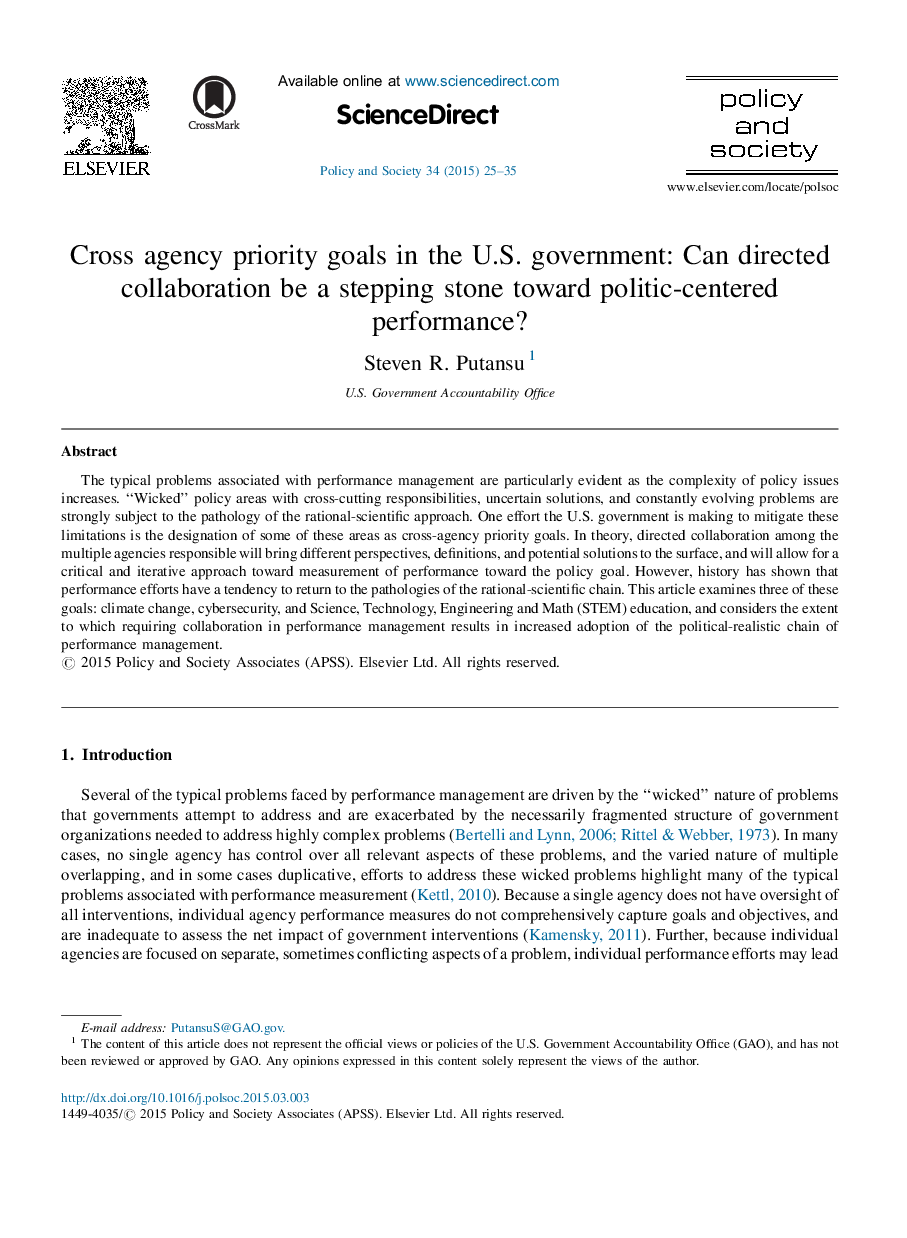| Article ID | Journal | Published Year | Pages | File Type |
|---|---|---|---|---|
| 1061517 | Policy and Society | 2015 | 11 Pages |
The typical problems associated with performance management are particularly evident as the complexity of policy issues increases. “Wicked” policy areas with cross-cutting responsibilities, uncertain solutions, and constantly evolving problems are strongly subject to the pathology of the rational-scientific approach. One effort the U.S. government is making to mitigate these limitations is the designation of some of these areas as cross-agency priority goals. In theory, directed collaboration among the multiple agencies responsible will bring different perspectives, definitions, and potential solutions to the surface, and will allow for a critical and iterative approach toward measurement of performance toward the policy goal. However, history has shown that performance efforts have a tendency to return to the pathologies of the rational-scientific chain. This article examines three of these goals: climate change, cybersecurity, and Science, Technology, Engineering and Math (STEM) education, and considers the extent to which requiring collaboration in performance management results in increased adoption of the political-realistic chain of performance management.
